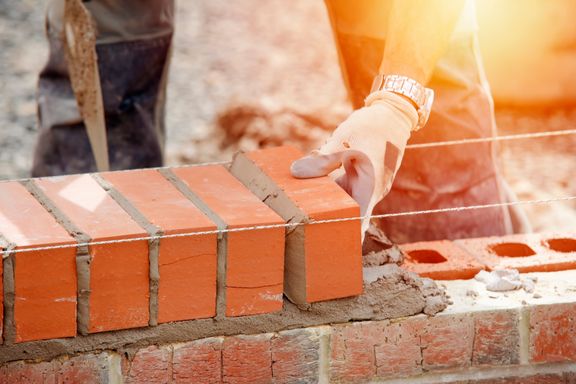
Do I need a visa to work as a construction contractor in the UK?
17/06/2024

As UK working visa rules continue to tighten, we’ve received an increasing number of enquiries about work situations and their resulting visa requirements. One of these involves people working in the construction industry. Many construction professionals across the UK work as either contractors or subcontractors, with taxation handled through the Construction Industry Scheme (CIS).
Does this mean you need a visa to work as a construction contractor or subcontractor in the UK? The short answer is yes, you’ll need to apply for a Skilled Worker visa. We’ll go into more details below.
If you’re an employer wondering whether you need a Sponsor Licence to hire construction workers, see “Do I need a Sponsor Licence to hire construction workers?", below.
What is a construction contractor and subcontractor?
Construction in the UK operates through a unique system of contractors and subcontractors.
A construction contractor can be a self-employed individual or a business. Some more details on this can be found on the gov.uk website.
Often, particularly when handling large-scale projects, these contractors will then also require further support from subcontractors.
Subcontractors are individuals hired by contractors to complete specific work on a construction project. But they also aren’t technically employees. Instead, subcontractors are always classified as either self-employed or owners of their own limited company.
What is the Construction Industry Scheme (CIS)?
Construction contractors have to apply for a unique taxation system known as the CIS.
This system allows contractors to make tax deductions (currently 20%) on their subcontractor’s behalf. Contractors must register with the CIS before they pay any subcontractors for contract work.
Registering for CIS as a subcontractor isn’t mandatory, but subcontractors who aren’t registered are taxed at a higher rate of 30% of their earnings.
Because of the CIS and the unique nature of contracting and subcontracting in construction, many people have asked us whether they can still perform these roles through the Skilled Worker visa route.

Can I work as a contractor on a UK work visa?
As we covered in our previous blog about Skilled Worker self-employment, there are certain cases where you can apply for a UK work visa and still be legally self-employed.
This means that yes, it is possible to work as a construction contractor or subcontractor on a Skilled Worker visa, but only in very specific circumstances.
According to S1.32 of the current guidance for sponsors document:
If the worker is self-employed, there must be a genuine contract for employment or services between you and the worker.
You would therefore need a clear contract from your employer, who must also be a Sponsor Licence holder. This contract must outline your pay, the contract’s start and end dates, and the details of the work you’ve been contracted to perform.
You also must be paid at least £38,700 per year, or the minimum standard salary rate for your chosen job if it’s higher than this amount. This is based on a 37.5-hour working week.
Several construction roles are currently listed on the UK’s Skilled Occupations list, including builders, construction planners, and project managers among others.
Some construction roles are also listed on the UK’s Immigration Salary List. For any construction roles on this separate list, the minimum salary requirement is instead 80% of the route’s usual minimum rate.
Example 1: Self-employed Contractor
An experienced construction project manager might be approached by a building recruiter to oversee a proposed 5-year building project.
If you and your proposed employer agree that you’d rather be self-employed, they would need to issue you with your clearly defined contract and a Certificate of Sponsorship. You would then be able to work for them through your Skilled Worker visa in a self-employed capacity for the duration of the contract.
Example 2: Self-employed Subcontractor
If you were a particularly talented stonemason approached by a business that served as a contractor, they could sponsor you as a self-employed subcontractor to work on a particular construction project.
In this situation, the business must be a Sponsor Licence holder and would need to provide you with a Certificate of Sponsorship. You would need to agree to a contract length, and your salary amount would be eligible for the reduction provided through the Immigration Salary List. You’d then need to apply for a Skilled Worker visa, and once you begin your job your contractor would then need to handle your taxation through CIS.

Do I need a Sponsor Licence to hire construction workers?
If you wish to hire skilled foreign workers for your construction business, then yes you will need to apply for a Sponsor Licence.
This means you will need to meet all of the usual requirements for becoming a UK Sponsor Licence holder.
You’ll need to issue each worker with their own certificate of sponsorship and pay the immigration skills charge, which increases based on how long you’re sponsoring each worker.
If you require additional support with sponsor licensing, find out more about our Sponsor Premium Support Package, or contact the White Rose Visas team directly.
Related Posts
UK Earned Settlement Plans: Just Not Cricket!

We explain everything you need to know about current UK Earned Settlement plans, and how you can have...
It is still possible to sponsor a Dental Therapist / Hygienist after 22 July on a Skilled Worker visa

It is still possible to sponsor a Dental Therapist / Hygienist (SOC Code 3213) after 22 July...
What Happened During the UK Parliamentary Debate on ILR Qualifying Period Extensions?

We outline the main talking points raised during the UK parliamentary debate on possible changes to UK Settlement...
How to Avoid Overpaying For Your UK Skilled Worker Visa

Avoid overpaying for your UK Skilled Worker visa application by checking the dates on your Certificate of Sponsorship
What does the 2025 White Paper mean for the Future of UK Immigration?

Find out everything that the UK government has proposed for the future of immigration in their May 2025...
Sponsor Licence Suspended: What Can I Do?

Find out how to challenge a Sponsor Licence suspension, and why it’s so important to act quickly if...
Can I Study On a UK Skilled Worker Visa?

Find out the rules for studying on a UK skilled worker visa, including any restrictions you need to...







